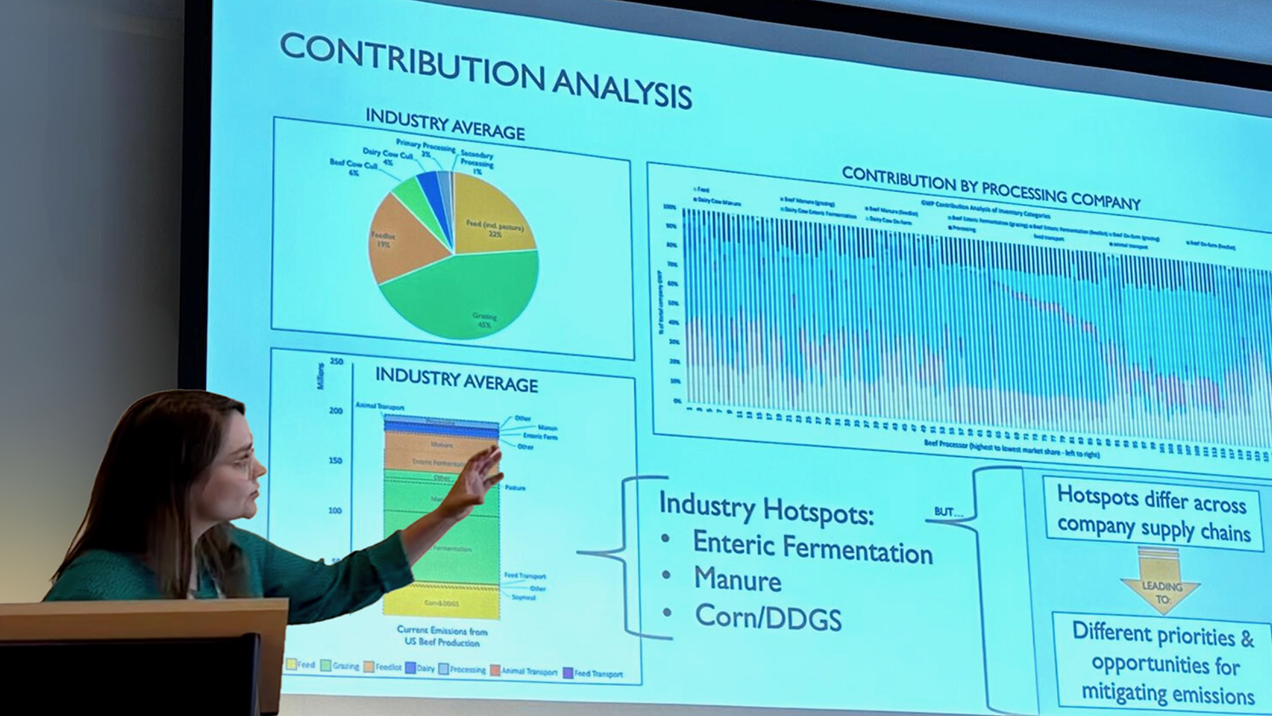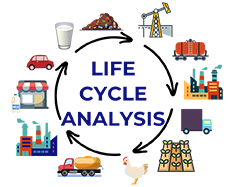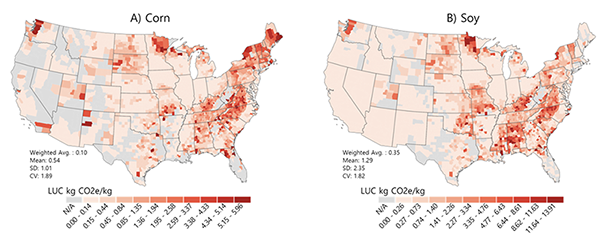
Rylie Pelton presenting FoodS3 research on a spatially-explicit life cycle assessment (LCA) of US beef at the International Society for Industrial Ecology (ISIE) conference in Leiden, NL in 2023.
The Institute on the Environment (Ione) works to discover solutions to the planet’s greatest environmental challenges – but how do these solutions find their way to those who can implement them? One pathway is through LEIF, LLC, a University of Minnesota startup launched in 2016 by IonE research scientist Rylie Pelton, PhD.
Pelton has long been interested in sustainability as a way to make an impact through her career. Her projects at IonE have focused on food systems and sustainability, with an eye toward identifying how to measure environmental impacts in a more granular way and how to use that information to drive effective action.

“I am particularly driven by the quest to find more actionable solutions for reducing environmental impacts and my research interests led to innovative advancements and applications of a method called parameterized life cycle assessment (LCA),” said Pelton. “This method can help businesses and communities better achieve their sustainability goals, compared to what can be achieved with traditional LCA approaches.”
Pelton uses her unique approach to LCA in the work she now does at LEIF, helping industry leaders and businesses find new scientifically viable ways to understand and reduce impact. Dr. Pelton’s parameterized LCAs differentiate specific technologies and geographies and account for variation across inputs and outputs of production throughout the lifecycle, providing entity- and region-specific assessments of baseline impacts. “By putting a spotlight on the hotspots across geographic and supply chain stages and simulating alternative production and consumption scenarios, we can identify the key leverage points that companies can target to more effectively and efficiently achieve sustainability goals.”

LEIF’s cutting-edge methods and tools for parameterized LCA and scenario analysis provide highly actionable and individualized guidance, whereas other companies in the same space rely on broad averages that produce less actionable information. LEIF is continuing to develop new tools to advance and enhance the capabilities of applied LCA, while growing partnerships and coalitions to promote science-based sustainability efforts across industries.
While juggling the roles of research scientist and chief executive officer can be challenging, it is also rewarding. “It offers a unique opportunity to bridge the gap of academic research and practical application of sustainability,” said Pelton. “Ultimately it helps drive change both within and outside of academia. My work at IonE can lead me to research breakthroughs, and my role at LEIF helps me put those breakthroughs into action.”
Pelton’s advice for other researchers interested in starting a company? “Deeply understand the problem you aim to solve, build a strong team that shares your vision, and remain adaptable to those different lessons each challenge might teach you.”